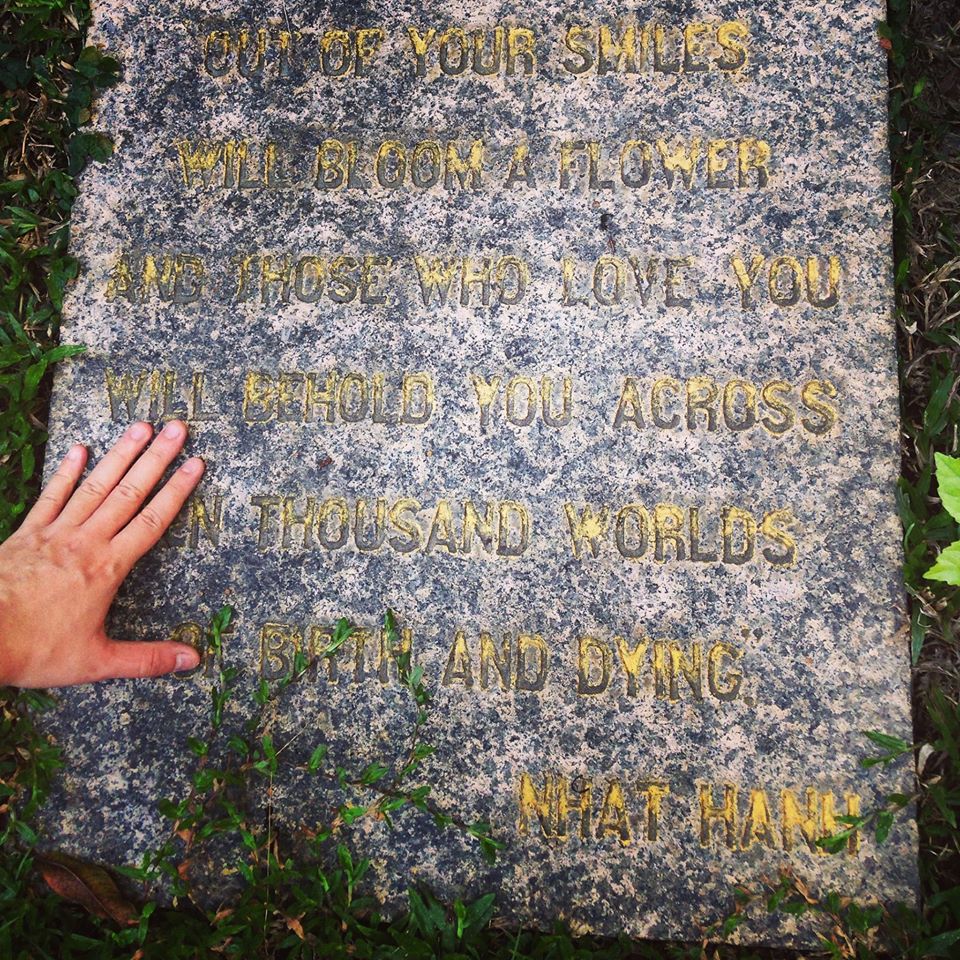“Out of your smiles will bloom a flower
and those who love you
will behold you across
ten thousand worlds of birth and dying.”
Thich Nhat Hanh
Engraved in a Catholic cemetery located in Pattaya, Thailand, there are words in memory of a tragic accident occurred during the Operation Babylift. At the end of the Vietnam War in 1975, the operation was employed by the US government in order to evacuate orphanage children from South Vietnam to the States and its allies (Canada, Australia, etc.). Even though the act was considered as “an heroic humanitarian effort” (Bergquist 622) that brought 2500-3000 children out of the war-torn country in 23 days, many criticisms arose due to the fact that not all of the rescued children are orphans, or abandoned by their parents. Not totally for the sake of the children’s, rather the evacuation was the States’ last political move to “give Americans a positive spin on its role in the war”, or as Gloria Emerson characterized it as a “successful propaganda effort”. A Yale psychologist, Edward Zigler (1976), investigated even further, ‘We’ve been ripping [the children] right out of their culture, their community.’
While reading about the operation, my mind immediately drew a connection between the “lifted babies” and Sarah from “Missing Sarah” (Maggie de Vries). Both were displaced children, somehow “ripped out” of their culture roots. In the case of Sarah, she grew up surrounded with an aching awareness that she is different, at the same time facing racism in the outside world. Nevertheless, at home she encountered a vague but yet haunting feeling of not “fitting in” right in her own adoptee family, among her loving brothers and sister. At least Sarah’s childhood experience was well documented through journals, letters and drawings. Such narratives were produced not only to exchange information as it was meant to originally, they now also provide readers with a whole new perspective into those lives on the margins. Sarah had her chance to speak with us, even though late, still it has an impactful meaning to transcend the untold.
How about the lifted babies and their untold stories? How were they then and how are they now? Were their narratives even recorded not to mention published? Do they have a chance to speak at all? Many questions and controversies emerged from Operation Babylift still echo up to now. While the 40th anniversary of the end of the Vietnam War is coming soon (1975-2015), I observe that the (mostly state-controlled) press has not been mentioning Operation Babylift with the same attention and direction as they should. They frame (Couser) the babies, as silent, not grieveable even? (Jiwani & Young).
But put all the negativity discussed aside, I still believe that those who love them will behold them across ten thousand worlds of birth and dying.
On April 4th 1975, “A major U.S. airlift of South Vietnamese orphans begins with disaster when an Air Force cargo jet crashes shortly after departing from Tan Son Nhut airbase in Saigon. More than 138 passengers, mostly children, were killed.”

